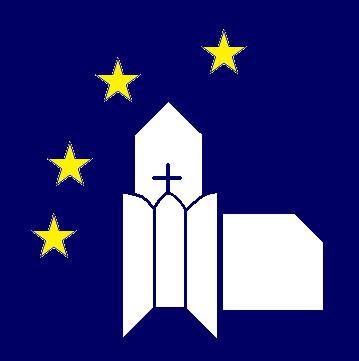1. Welcome to the european delegates…Buenos días, Buon giorno, Bonjour, Good Morning, Guten Morgen. In this Study Day, we give you a warm and fraternal welcome from Redes Cristianas and from the other Spanish member groups belonging to the European Network, namely, Cristianas y Cristianos de Base de Madrid, Colectivo Somos Iglesia, Católicas por el Derecho a Decidir and including the Community of Santo Tomás de Aquino (St Thomas Acquinas) and the Movimiento Apostólico Seglar (MAS Lay Apostolic Movement) in whose hall we welcome you today.
2. During the morning, we are going to celebrate two important activities:
Our reflection is going to center on Europe under the subject: “Reasons for hope in a dehumanised and disenchanted Europe” and these two qualifying adjectives have been carefully selected.
a) Dehumanised because the EU project, based fundamentally on the financial market, is displacing sine die its social and political project, destroying its democratic content and, in consequence, demotivating its citizens. In this sense,Europe is being raped once more. (You will remember the legend: Zeus, empassioned by Europa, decides to seduce her and having transformed her into a white bull, carries her on his shoulder to the isle of Crete. Her people, overwhelmed with grief, remain bitterly weeping her absence.... In our time, the rape is being carried out by the markets and the merchants)---And with the rape, Europe is losing its soul, it has renounced utopia, of being the cradle of human rights and the social state, fatherland of liberty and tolerance, of being the land of asylum and welcome, and has become an unstormable fortress for those outside and a fair for the marketeers within. It is sad to recognise the fact that Europe is becoming dehumanised.
b) Desenchanted because, the religions, facing the dehumanising rape of Europe, are officially dumb, taking refuge in silence. And that converts them into accomplices and guilty of a lack of stimulation, of the death of utopia.
Because, at the best of times, the religions are “a tradition of meaning” which shapes human life in a harmonious relationship with
the other person, different men and women, and with the Earth that is the home of all women and men. But, additionally, religions contain a symbolic capital or ethical nucleus which converts them into powerful builders of fraternity: where the other man or woman is a stranger or a competitor (as in the market) religions are capable of seeing a person from a nearby and fraternal viewpoint, as an accomplice and an ally in rescuing human dignity from its weakest location, that of the victims. Because religions are conscious that the rescue of humanity from those places of exclusion is the best way to universalize and planeterise dignity.
So keeping silent about what is happening in the rape of Europe, is converting religions in accommplices and extras of the new gods, the markets. And so they are losing their charm. Because, as in the song of Mercedes de Sosa, “ if the singer stops his song, life loses its voice; if the singer stops singing, hope, light and happiness dies of fright....a cowardly silence masks the evil that oppresses...”
In these conditions, with a dehumanised and disenchanted Europe, do we have reasons to maintain our hope in its humanising project?
To help us in this search, we are counting on two strong contributions: a talk and a round table. Allow me to briefly outline some characteristics of our first speaker: Antonio García Santesmases: He is professor of Political Philosophy in the UNED Universidad Nacional de Educación a Distancia = the Open University). He has been for many years the spokesperson for the Corriente Izquierda Socialista (leftwing socialist opinion) and member of parliament. Amongst his publications, we can highlight: Marxismo y Estado (Marxism & the State) (1986), Repensar la izquierda (Rethinking the Left) (1993); Reflexiones sobre el agnosticismo (Reflections on Agnosticism) (1994); Ética, Política y Utopía (Ethics, Politics & Utopia) (2001); Laicismo, agnosticismo y fundamentalismo (Secularism, Agnosticism & Fundamentalism) (2007). He has participated in several collective books, like Ciudad y Ciudadanía (The City & Citizenship), Senderos de la Filosofía Política (Pathways of Political Philosophy). And he has been editor of the works of José L. López Aranguren La izquierda, el poder y otros ensayos (The Left, Power and Other Essays), he possesses a great knowledge on how to interpret the socialpolitical phenomenons of our time, he is a dialoguing man and, above all, a great friend. With all of us women and men and talking today about “The Current European Crossroads”, Antonio G. Santesmases,
